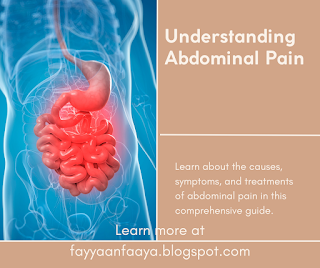Understanding Abdominal Pain: When to Worry and When to Wait
Abdominal pain, a common symptom with various potential causes, often leaves individuals grappling with uncertainty. This comprehensive guide aims to shed light on the intricacies of abdominal pain, providing insights into when it demands immediate attention and when a watchful waiting approach is appropriate.
1. Unraveling the Complexity of Abdominal Pain
Understanding the multifaceted nature of abdominal pain is crucial for accurate assessment and timely intervention.
1.1 Types of Abdominal Pain
- Visceral Pain: Arising from internal organs.
- Parietal Pain: Originating from the abdominal wall.
- Referred Pain: Felt in an area distant from the source.
1.2 The Role of Pain Characteristics
- Severity: Gauging the intensity of pain.
- Duration: Examining how long the pain persists.
- Location: Pinpointing the specific area of discomfort.
- Quality: Describing the nature of the pain (sharp, dull, crampy).
2. Red Flags: When to Seek Immediate Medical Attention
Certain signs and symptoms associated with abdominal pain necessitate prompt medical evaluation to rule out serious conditions.
2.1 Sudden and Severe Pain
A sudden onset of intense abdominal pain may indicate a medical emergency, such as appendicitis or a perforated organ.
2.2 Abdominal Pain Accompanied by Fever
The combination of abdominal pain and fever may signal an underlying infection or inflammatory process requiring urgent attention.
2.3 Persistent Vomiting
Continuous vomiting, especially when accompanied by abdominal pain, may suggest an obstruction or gastrointestinal emergency.
2.4 Abdominal Pain Post-Injury
If abdominal pain follows trauma or injury to the abdomen, it's essential to seek immediate medical assessment to rule out internal damage.
3. Watchful Waiting: Understanding Non-Emergent Scenarios
In some instances, abdominal pain may have a less urgent etiology, allowing for a period of observation.
3.1 Indigestion and Gas
Mild abdominal discomfort related to indigestion or gas often resolves with time and simple remedies.
3.2 Menstrual Pain
For females experiencing abdominal pain associated with menstruation, a watchful waiting approach during the menstrual cycle may be appropriate.
3.3 Recurrent Abdominal Pain with Known Causes
Individuals with chronic conditions like irritable bowel syndrome (IBS) may experience recurrent abdominal pain, often managed with a pre-established plan.
4. Seeking Professional Guidance: When in Doubt, Consult a Healthcare Provider
Deciphering the urgency of abdominal pain can be challenging. When uncertain, seeking advice from a healthcare professional is paramount.
Conclusion: Navigating Abdominal Pain with Informed Decisions
Understanding abdominal pain involves recognizing red flags, embracing watchful waiting when suitable, and acknowledging the importance of professional guidance. Empowered with knowledge, individuals can make informed decisions regarding their abdominal health.



Post a Comment
0Comments